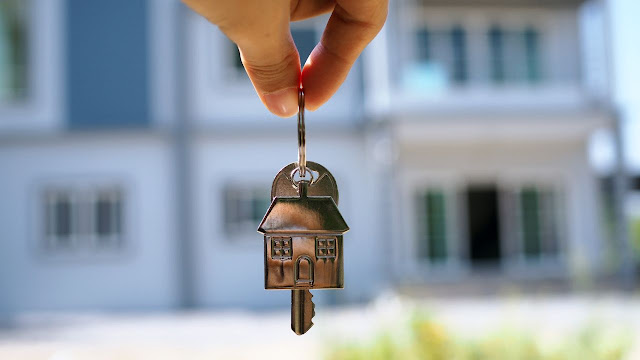Starter Home or Forever Home: You Decide

Buying your first home is an exciting experience. However, should you choose an affordable starter home or a forever home where you can put down roots?
Questions to Ask Before Buying Your New Home
Because most experts recommend staying in your home for at least five years, you’ll want to choose it carefully.
How Much Can You Afford?
According to the Consumer Financial Protection Bureau, most mortgage lenders have a maximum 43% debt-to-income ratio requirement. This threshold is in place to reduce the chance of homeowners having difficulty paying their mortgages while also paying their other living expenses.
Using a loan calculator, you can estimate your monthly mortgage payment for different homes. You may prefer to pre-qualify for a loan to discover how much money a lending institution might let you borrow.
You still have financing options if you don’t have the traditional 20% down payment amount for a conventional loan. You might qualify for FHA, VA, Rural Housing, or other loan products that don’t require much of a down payment. It’s a good idea to research what types of loans you may be eligible for.
Is it Likely That You’ll Have to Move?
People move for many reasons, including advancing their career, being closer to family members, and living in a different area. If you're likely to move again, a starter home may be your best bet.
Where Is the Home Located?
You want to live in a safe area that is convenient to work, schools, and leisure activities.
What Homes Are Available?
You may have a particular area or neighborhood you’d like to live in. Search the local real estate market to see current offerings; you may find a great deal on a home that you might not consider purchasing otherwise.
Starter Home vs. Forever Home
Each option has pros and cons. There’s no one correct answer; your circumstances dictate which option might be a better choice for you.
Starter Home
A starter home is usually a smaller residence, typically a house or condo, that people buy intending to move again. They are sometimes older, and there’s generally not much property to go along with them.
Pros
- Purchase prices are lower.
- A smaller space means less upkeep.
- You can potentially rent it out in the future.
- You’ll build equity towards purchasing your dream home.
Cons
- Starter homes are smaller.
- They usually don’t have many upgraded features.
- You may need to make repairs.
Forever Home
Your forever home should accommodate current and future needs, such as bedrooms for new children and home workspaces. It should be in a community you’re comfortable with and have the features you want.
Pros
- Forever homes are usually larger.
- You won’t need to move again.
- These homes have more upgrades.
- Lot sizes are usually larger.
Cons
- These larger homes are more expensive, especially if they contain upgraded features.
- More space means more upkeep.
- Some of these homes are in neighborhoods with Homeowner Association rules and fees.
Moving Tips
Whatever type of home you're moving to, using a moving checklist removes lots of stress. An important item is deciding who will move your belongings from your current residence to your new home. If you want to hire a professional mover, research local movers and read Angi reviews.
Dallaire Realty offers these tips: "When you get to the quoting process, remember that legitimate movers inspect your home before they place a bid. Always get a written estimate; don’t accept estimates over the phone."
The Decision Is Yours
Before buying a home, it’s crucial to consider many factors. Whether it’s a starter or a forever home, the place you choose should meet your budget and needs.
Image via Pexels


Deciding between a starter home or forever home depends on your lifestyle and long-term goals. Bellevue homes for sale offer diverse options, whether you're looking for a cozy starter or a dream forever home. Explore the market and choose what fits your needs best in this vibrant community!
ReplyDelete